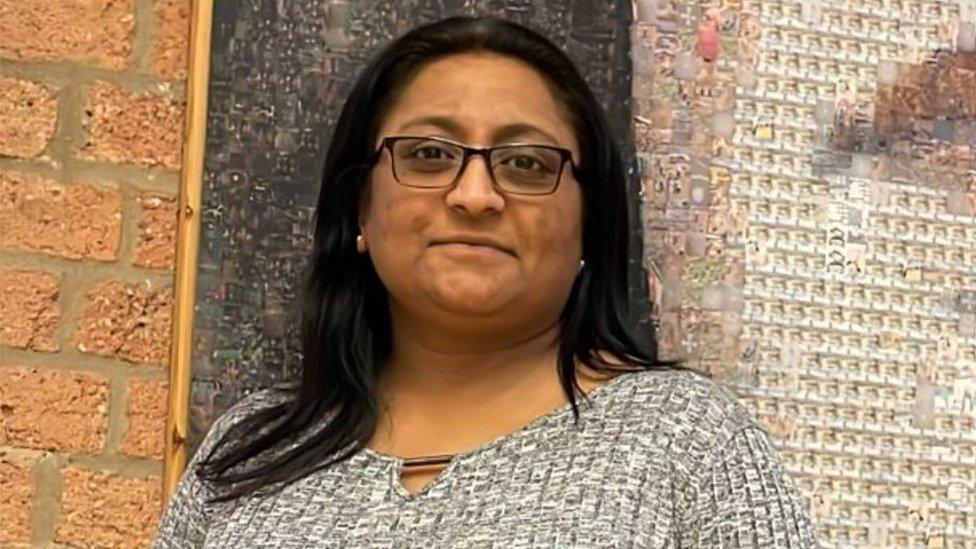Cost of living: Stoke widower 'forced to sell wife's keepsakes'
- Published
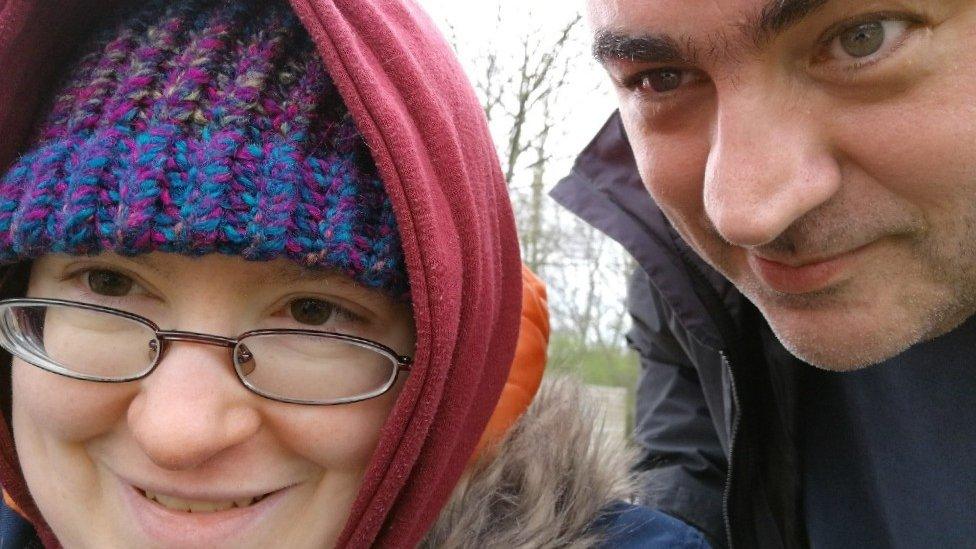
Paola Alcock died after being diagnosed with acute lymphoblastic leukaemia
A disabled widower says he has been forced to sell his late wife's treasured possessions to survive the cost of living crisis.
Jason Alcock said since the Covid pandemic, he had been "living below poverty" as his bills had more than doubled.
The 51-year-old from Stoke-on-Trent called for more financial support for disabled people amid price hikes.
The government said financial support was available.
Mr Alcock, who has autism, ADHD and bipolar disorder, said he had sold items totalling £8,000 following the death of his wife Paola in 2018.
He explained his conditions made leaving the home, and interaction with others, difficult, and as a result, he was tied to technology to communicate from home.
But with domestic bills increasing, and his income coming from Personal Independence Payment (PIP), Employment Support Allowance (ESA) and a severe disability premium, the approach was proving a challenge, he said.
Among the problems, he explained, was online shopping.
"For me to do anything is more expensive," he said. "I can't go to the local shop and pick up a loaf of bread -if I want to order a loaf, I've got to do a minimum £40 shop; it's made everything harder."
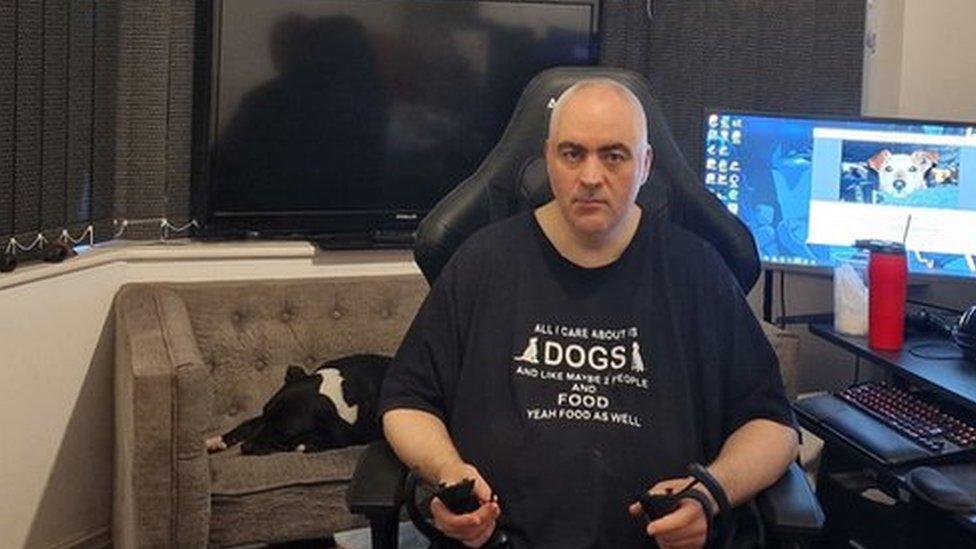
Mr Alcock said his disabilities meant he found it difficult to leave the house, making him reliant on technology
Mr Alcock said his electricity and gas bills had jumped from £45 and £30 to £116 and £70.
To cover rising costs, he said he had resorted to selling a much-loved Stars Wars memorabilia collection which belonged to his wife, who died after being diagnosed with acute lymphoblastic leukaemia.
'I've got nothing else to sell'
He said he was also forced to sell her arts and crafts, mobile phone and gadgets.
"A lot of the things I would have loved to have saved - they meant something to me - have all been sold," he explained.
"I'm at the point now that I've got nothing else to sell.
"It is scary to know there may come a time when I might end up in hospital because I can't do the things that keep me safe each day."
A spokesperson for the Department for Work and Pensions said financial support was available to those with disabilities or caring responsibilities and urged people to check they were getting all the help to which they were entitled.

Follow BBC West Midlands on Facebook, external, Twitter, external and Instagram, external. Send your story ideas to: newsonline.westmidlands@bbc.co.uk, external
Related topics
- Published10 June 2022
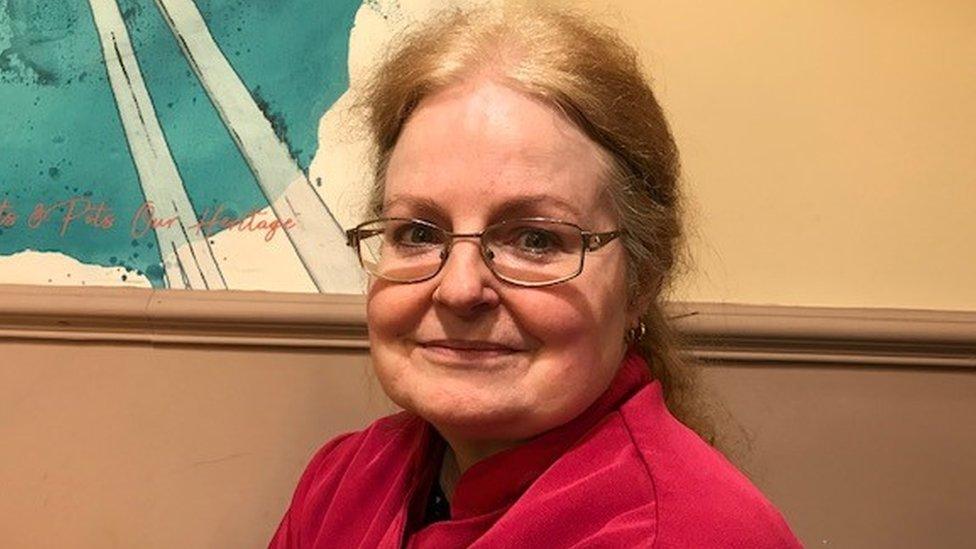
- Published4 February 2022
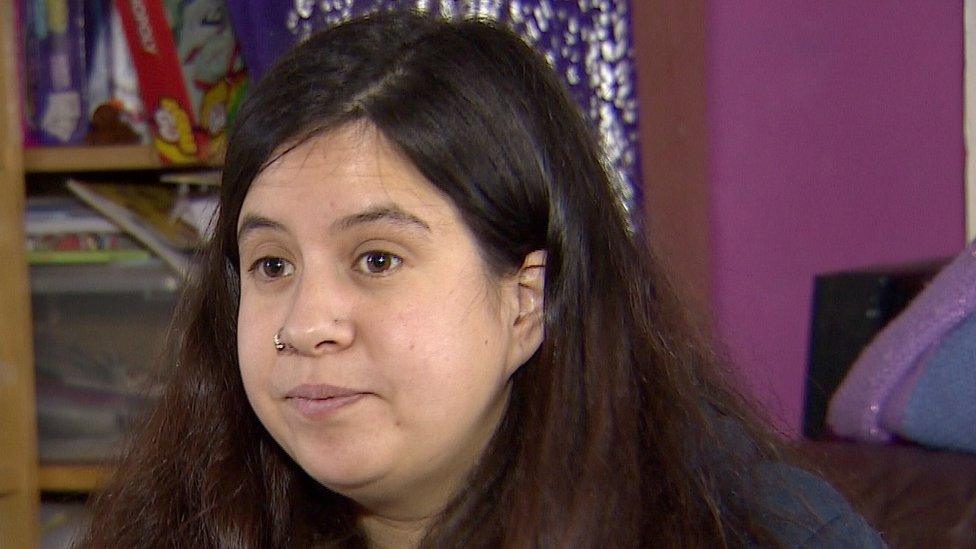
- Published9 February 2022
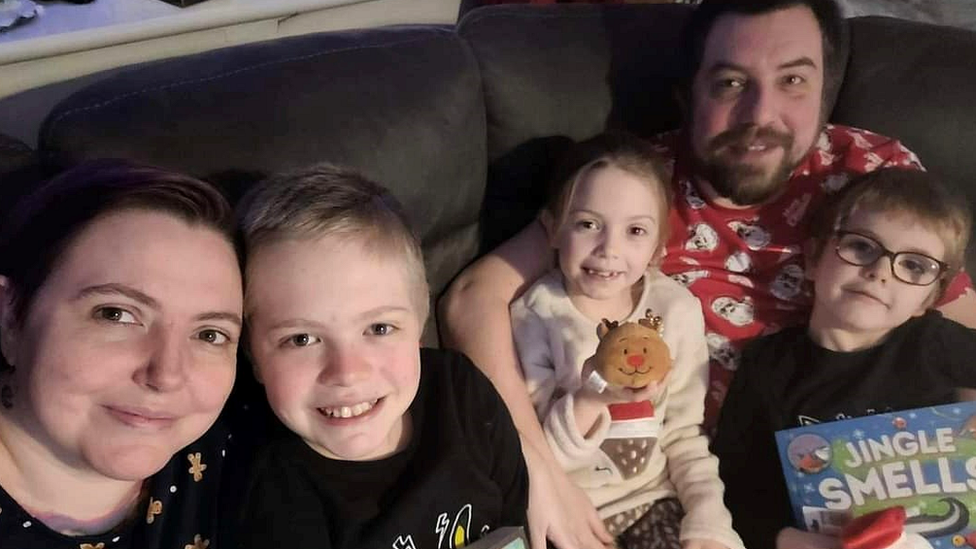
- Published8 February 2022
